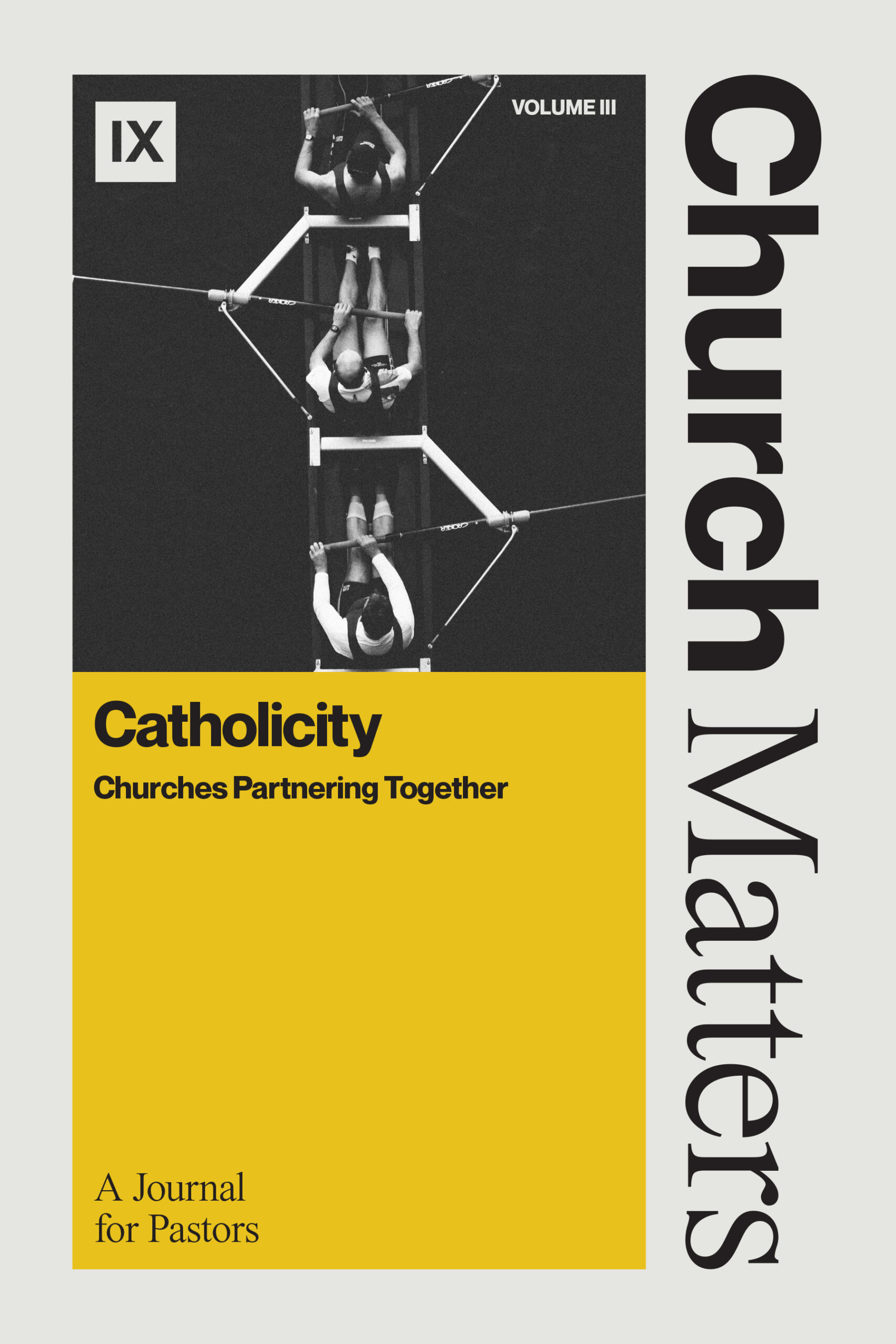What I’ve Learned from the Anglicans
I’m writing this a matter of months after the Church of England’s General Synod, the Anglican Communion’s national leadership body, agreed to bless same-sex marriage. While refusing to go the whole way and formally conduct weddings of same-sex couples, the Church of England’s latest ecclesiastical fudge has rightly grieved evangelicals of every stripe, both inside and outside Anglicanism. It seems some form of schism is a sad inevitability.
Seeing my episcopalian brothers’ and sisters’ denominational heartache brings me no pleasure. There’s no schadenfreude here. I might be baptistic; I might be an elder-led congregationalist; I might even be named after D. Martyn Lloyd-Jones himself (yes, really); but despite my ecclesiological convictions and clear sense of being on Team MLJ, as opposed to Team Stott (see their well-documented contretemps in 1966 for more on that one), I owe a great debt of gratitude to evangelical Anglicanism.
I was raised as a reformed Baptist pastor’s kid in a small urban ministry in the east end of London before I entered the wild world of university. At this point, I wasn’t entirely sure you could even be an Anglican and a Christian. Joining those words seemed like an oxymoron, like dry water, or sophisticated American. But I digress.
As the years have passed, I’ve grown to love my Anglican brothers and sisters even more. And so, in no particular order, here are nine lessons I’ve learned from my friends within the Church of England.
IX Marks of a Healthy Anglican
1. Commitment to Expository Preaching
For over forty years, conservative evangelicals have been enormously helped by the ministry of the Proclamation Trust (PT). PT grew out of St Helen’s Bishopsgate under the ministry of then-Rector Dick Lucas. At its heart, PT’s conviction has always been that God’s voice is heard when the Bible is faithfully taught. I will be forever grateful to God for using Anglican brothers to demonstrate this for me: people like Dick Lucas himself, John Stott, Vaughan Roberts, Andrew Sach, Rico Tice, and William Taylor.
2. Commitment to Gospel Partnerships
One of the geniuses of the Proclamation Trust was the gospel partnership that birthed it. Anglican Dick Lucas teamed up with his good friend and non-conformist pastor, David Jackman, to begin preaching conferences for ministers from across the denominational spectrum. Given the theological diversity within Anglicanism, there has been a particular need for our Church of England friends to develop evangelical partnerships. Still, as a Baptist, I’ve hugely appreciated the commitment (often led by the Anglicans) to labor together for the cause of Christ in church planting, regional training courses, and local gospel outreach.
3. Commitment to Personal Discipling
My Anglican friends’ example of one-to-one discipling has also been a significant inspiration. Many developed such convictions through the ministry of summer activity holidays and the culture of “personal work” that was so seminal to their success. Of course, older Christians meeting with younger Christians for Bible reading, prayer, and personal accountability is not unique to the Church of England. But I saw it first in my Anglican friends.
4. Commitment to Biblical Theology
The rediscovery of biblical theology—the theological discipline of taking specific Bible themes and tracing them progressively through the unfolding plan of salvation from Genesis to Revelation—was famously championed by Geerhardus Vos of Princeton Theological Seminary at the turn of the twentieth century. But I got my first taste of biblical theology through the crystal-clear writing of Graeme Goldsworthy’s Gospel and Kingdom and According to Plan. Goldsworthy wrote from what has been arguably the hotbed of conservative evangelical Anglicanism: Moore Theological College in Sydney, Australia. Which brings me to my next point.
5. Commitment to Courageous Evangelism
The influence of Sydney Anglicans—especially the preaching of Philip Jensen, the leadership of his brother Peter Jensen through Moore College, and the evangelistic zeal of John Chapman—cannot be over-emphasised in the UK. They modeled how to preach the gospel to lost souls with simplicity, clarity, and courage. These men gave evangelicalism the “Two Ways to Live” gospel presentation. That the Jenson brothers and Chapman were Anglican ministers—a denomination not generally known for its gospel clarity and fidelity—only served to challenge my early presuppositions about whom I might learn from the most. Moreover, Rico Tice from All Souls Langham Place developed the hugely popular Christianity Explored course.
6. Commitment to Ministry Training
Between 2000 and 2001, while I was getting going in vocational Christian ministry, I had the privilege of working with two very similar senior pastors who were also very different. In 2000, I served as a pastoral assistant under Mark Dever at Capitol Hill Baptist Church. In 2001, I worked as an apprentice with Anglican Richard Coekin, the Senior Minister of Dundonald Church (Richard subsequently became the founding director of the Co-Mission church-planting network). As a twenty-something newbie to gospel work, it was so encouraging to see on both sides of the pond and across the Baptist-Anglican divide, a shared desire to see a new generation of gospel workers raised, trained, and released.
7. Commitment to Contending for the Faith
The Church of England has been Protestant since the days of Thomas Cranmer and Henry VIII. At this point, the British Monarch became the formal Head of the Church of England and was given the title “Defender of the Faith.” The recent funeral of our late Queen Elizabeth II and the subsequent coronation of King Charles III demonstrated how inextricably the established church is interwoven with the affairs of state in Great Britain. The Anglican Church wields vast power, resources, and public influence. Despite the sad fact that many within the Anglican church have departed from biblical Christianity, I see it as highly commendable that so many evangelicals refuse to let the denomination “go to the dogs” and see hard-won gospel assets lost or misused. Though I’m convictionally a non-conformist, I admire their courage, determination, and fidelity.
8. Commitment to a Rich Theological Heritage
The Thirty-Nine Articles of the Church of England (the Anglican church’s statement of faith) and the Book of Common Prayer (Thomas Cranmer’s liturgical guide) are both excellent pieces of theological reflection and application. For hundreds of years, they have preserved and protected orthodoxy. At our weakest, non-conformists have opted for more insipid and faddish reinventions of corporate worship. Thankfully, I came to value liturgy most during my seminary training at the Anglican Oak Hill Theological College, and it still informs my service-leading today.
9. Commitment to Serving Every Community
Some Anglican churches are large and high profile, in strategic locations. However, most serve small, local, and often rural communities throughout the UK. I greatly admire Church of England friends who’ve chosen not to make a name for themselves but instead quietly serve the Lord in unseen communities of ordinary people, plugging away at preaching, praying, loving, staying, and preserving a myriad of small gospel witnesses. Surely their treasure is in heaven.









